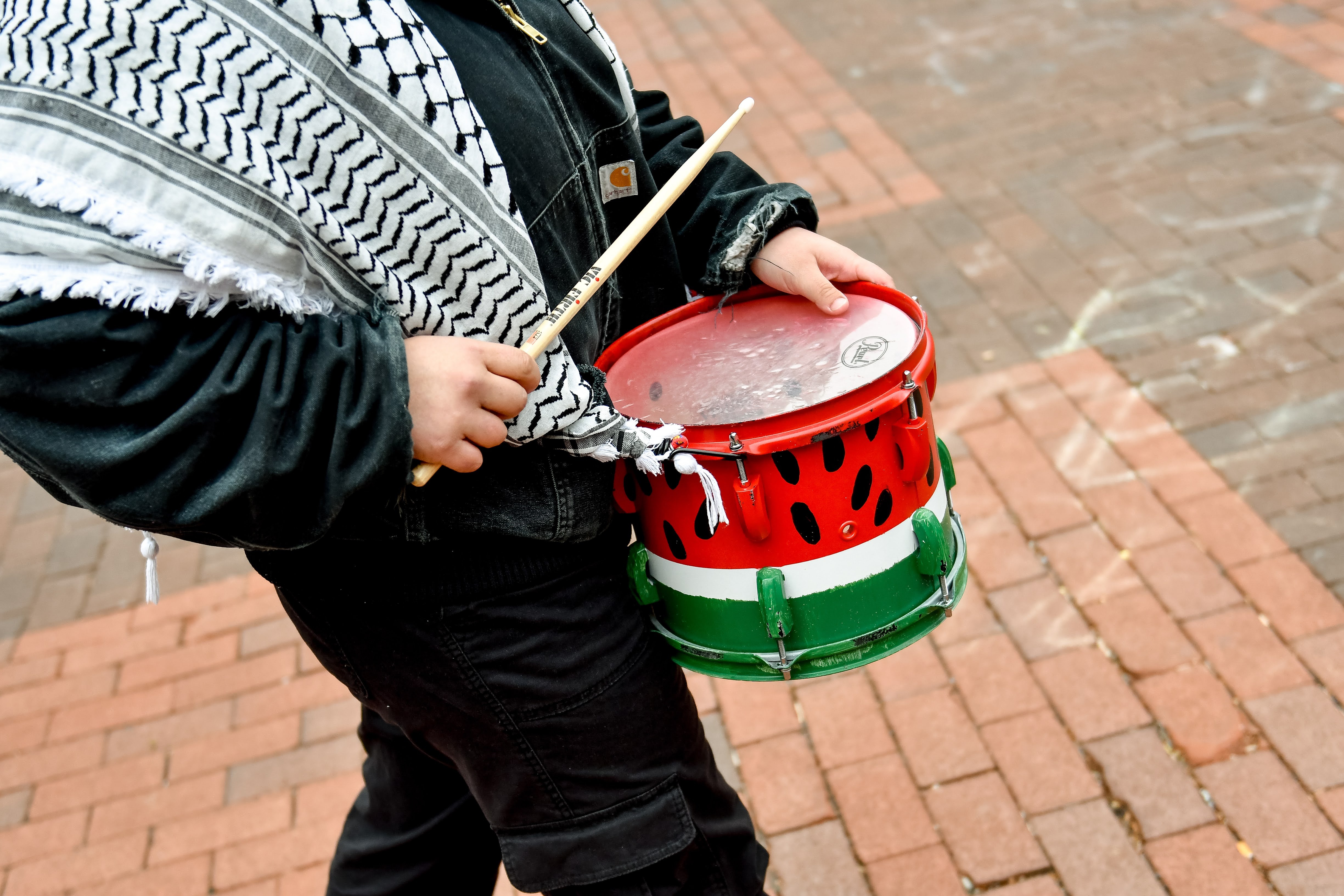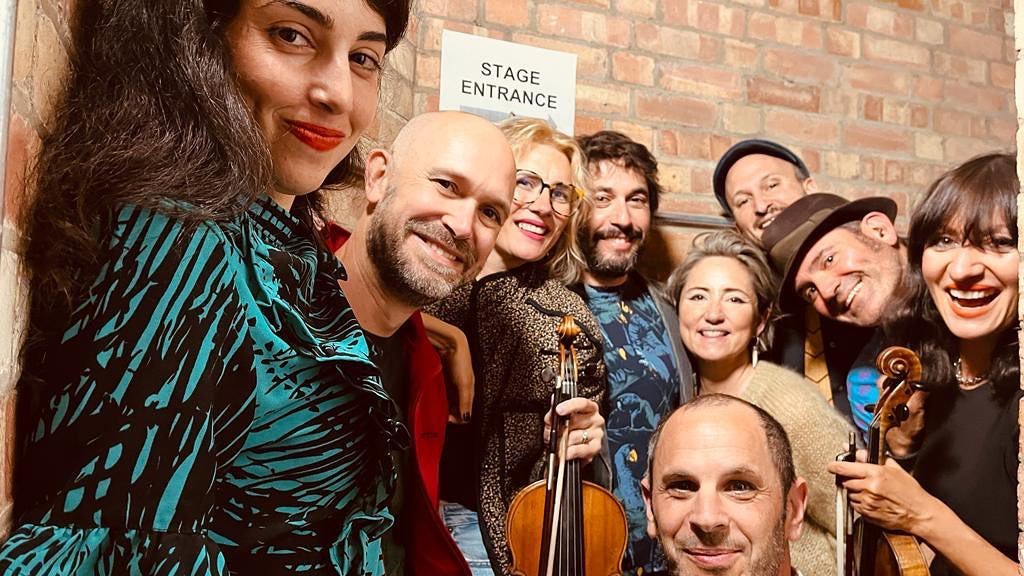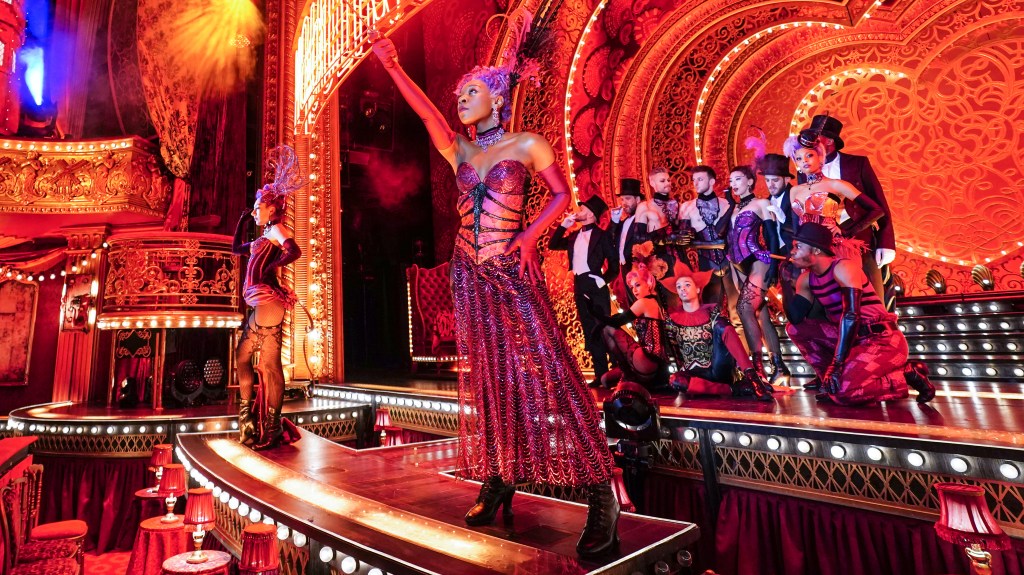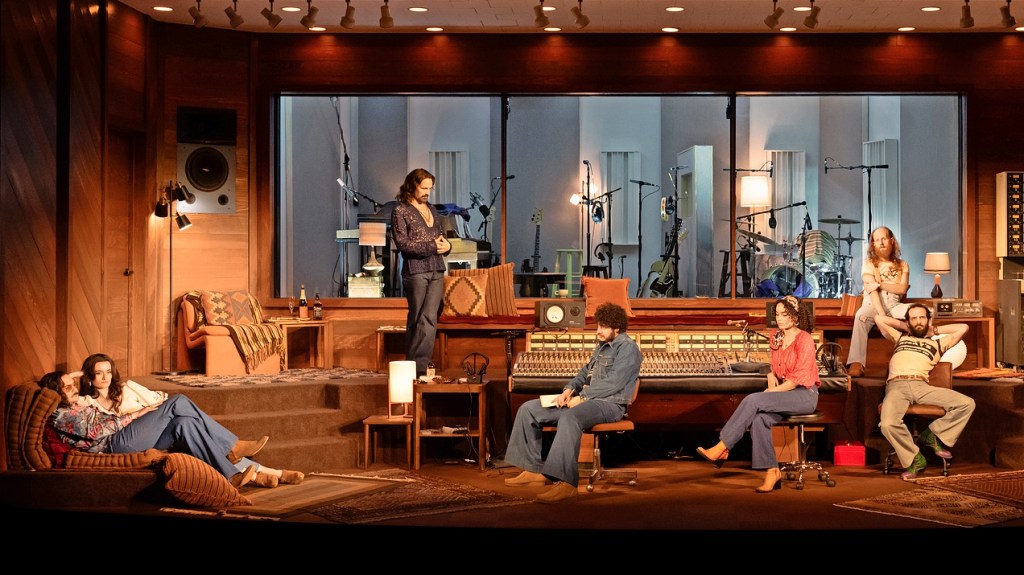Venue Cancels Performance Due to Controversial Album Artwork by Israeli Artist
A band from the UK featuring an Israeli vocalist has accused a live music venue of discrimination after their scheduled performance was abruptly canceled.
Strange Brew, located in Bristol, informed the klezmer band Oi Va Voi—who have been active for 25 years—less than two days prior to their concert on Wednesday that they would not be allowed to perform.
The cancellation was attributed to an album cover of Zohara, a member of the band from Tel Aviv. The artwork shows her nude while tending to a field of watermelons, which have become a symbol of Palestinian resistance.
This concert was supposed to be Oi Va Voi’s first stop on a UK tour following a series of performances across Europe. The cancellation comes just weeks after two UK shows featuring Radiohead’s Jonny Greenwood and Israeli musician Dudu Tassa faced similar fates.
Josh Breslaw, Oi Va Voi’s drummer and a founding member, shared with reporters that the band had just returned from a European tour promoting their latest album, The Water’s Edge. The Bristol gig was meant to be the first of four they planned in England.
Breslaw reached out to Strange Brew three weeks prior to the performance after observing the venue’s support for the Boycott, Divestment and Sanctions movement. He emphasized that the band’s music is not political but deeply rooted in Jewish culture, and they frequently perform alongside Arab musicians in Israel.
Concerned about potentially facing hostility, Breslaw wanted assurance from the venue, which had promised there would be no issues. An email from the venue affirmed its strong stance against antisemitism and declared it a safe space for the band.

On Monday, the band was informed that Zohara’s participation was the reason for the cancellation.
When asked for specifics, the venue stated it had been alerted to a piece of artwork by one of the performers, which they deemed politically offensive given the current situation in Gaza. The referenced album cover is Zohara’s Welcoming the Golden Age, depicting her nude amidst a field of watermelons—fruits that symbolize resistance to Israeli occupation due to their colors replicating the Palestinian flag.

Breslaw attempted to clarify that Zohara identifies as a leftist peace activist and that in her perspective, the fruit embodies themes of femininity and nature. However, the venue maintained that the image was inconsistent with its ethical standards regarding the ongoing situation.
In a Facebook post, the band expressed regret, stating: “After over 20 years performing in diverse countries for audiences of various backgrounds, we find ourselves facing the cancellation of one of our shows in the UK, our home territory.”
They apologized to their supporters, indicating that their cancellation was prompted by pressure from anti-Israel activist groups.
The band’s statement continued: “Anyone familiar with Oi Va Voi knows our music tackles social consciousness and humanitarian themes, aiming to unite diverse audiences rather than divide them. We take pride in this.”
They further criticized the pressure groups for making unfounded assumptions based solely on the ethnic background of some band members, claiming that these tactics resemble those historically used by far-right factions globally, and described the incident as a blatant act of discrimination.

The band called upon the “gatekeepers of the UK arts scene” to take action, advocating for new legislation that would shield venues from intimidation by activist groups, ensuring a free and pluralistic society.
Strange Brew stated it had intended to host the concert until Monday, when it received requests from campaign groups and the public for its cancellation. Addressing the controversial album cover, the venue remarked that regardless of the intended message, the politically charged symbolism could be perceived as insensitive or offensive to the Palestinian community and the venue’s attendees. Consequently, they felt uncertain that allowing the artist to perform aligned with their ethical beliefs.
Furthermore, the venue clarified: “We have never excluded anyone—artists or patrons—based on ethnicity, religion, or nationality.”




Post Comment